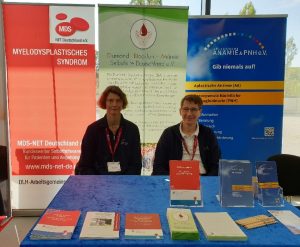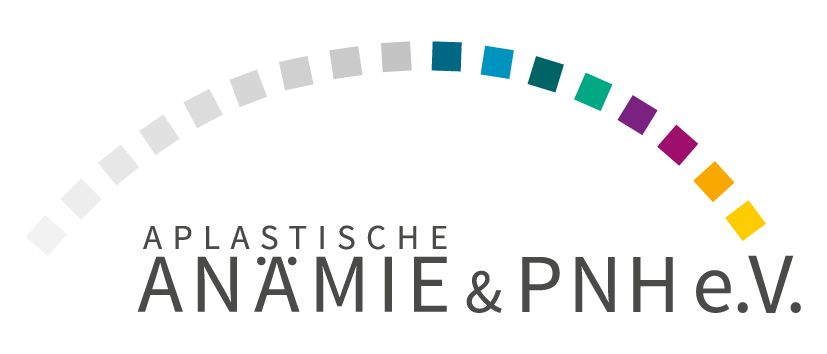DGHO annual meeting in Berlin
This year’s annual meeting of the German, Austrian and Swiss Societies for Hematology and Medical Oncology – in short “DGHO Meeting” – took place from October 11-14, 2019 in Berlin and again offered numerous lectures, including on aplastic anaemia and PNH. In the case of aplastic anaemia, it was among other things about diagnostics. Prof Dr Klaus Geissler from Vienna emphasized that the careful examination of the blood and bone marrow is extremely important in order to reliably diagnose the clinical picture, since the abnormalities in the blood count initially are very similar for different diseases. With regard to transplants, Prof Dr Jakob Passweg from Basel, showed the possibilities of curing aplastic anaemia based on the DGHO guidelines. Thanks to improved pretreatment, it is now increasingly possible to transplant patients without a suitable related donor, provided that their biological age does not contracindicate this.
PNH was the focus of the conference. Dr. Britta Höchsmann (Ulm University Hospital) pointed out in her lecture on targeted therapy for PNH that two antibodies are available for treatment: eculizumab and, since July 2019, ravulizumab. According to previous experience, pregnancies are also possible during eculizumab therapy, but during this time the patient should be accompanied by a center that specializes in PNH and gynaecology. Dr. Alexander Röth (Essen University Hospital) presented the results of the study on crovalimab, an antibody that is injected under the skin, on a poster. Initial results show that the drug has a long-term effect and is well tolerated. Furthermore, Dr. Röth reported on the non-inferiority study comparing the effectiveness of ravulizumab versus eculizumab. In particular, in terms of normalization of LDH levels and the incidence of breakthrough haemolysis, the results of ravulizumab were better than those of eculizumab.
At the end of the conference, Prof Dr Hubert Schrezenmeier (Ulm University Hospital) was awarded a “Best Abstract” prize. He presented the “one-year data on the efficacy of ravulizumab (ALXN1210) in adult, complement inhibitor-naïve patients with paroxysmal nocturnal haemoglobinuria”, which demonstrate the long-term efficacy of the drug in previously untreated patients.

Ulrike Göbel and Michael Schwendler at our information booth
As in previous years, our association was represented with an information stand and offered visitors the opportunity to find out about our diseases. We, in turn, took the opportunity to exchange ideas with doctors, other self-help representatives and other visitors.

